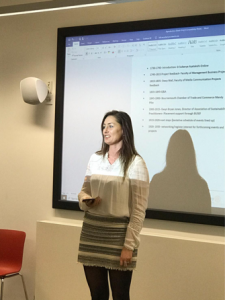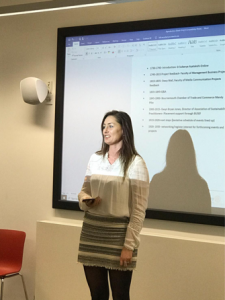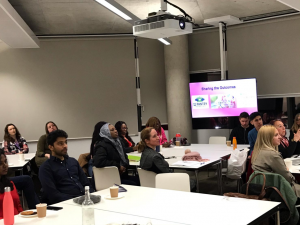Parliament has returned from recess and happily so has your policy update. Here are the main stories from the last two weeks.
Parliamentary News
The FT reports that ministers are preparing to unveil a stimulus package in July, with money expected to go into training schemes and infrastructure projects plus support for technology companies. “With unemployment rising rapidly, the prime minister is also due to make a major speech in June aimed at encouraging Britons into work”. The fiscal event is not expected to constitute a Budget. Some No 10 officials are reportedly pushing for the national infrastructure strategy to be repackaged as spending to fuel the economic recovery after the Covid-19 crisis.
House of Commons Speaker Sir Lindsay Hoyle wrote to MPs to outline new voting arrangements after hybrid proceedings were ended. Leader of the House of Commons Jacob Rees-Mogg has tabled a Government motion on proposals for voting, which could include socially distanced queues through the halls of Parliament.
The Labour Party and other opposition parties tabled an amendment to the Government motion on voting in the Commons, which they lost. Valerie Vaz MP, Shadow Leader of the House, said
- “Jacob Rees-Mogg ‘s discriminatory proposals would result in two classes of MPs. Those who can physically attend and those unable to owing to the Government’s own rules, including having an underlying health condition or shielding responsibilities. The abolition of the hybrid remote parliament which allowed all MPs to take part regardless of their personal circumstances is discriminatory and would not be acceptable in any other workplace. We remain ready to work with the Government and all parties to reach a consensus that would allow all MPs to participate on an equal basis.”
In Wednesday’s PMQs, the PM appeared to say that proxy votes would be allowed, which contradicted the statement from Rees-Mogg – this debate will probably continue.
Apprenticeships
The DfE published an update to their Apprenticeships and Traineeships (England) statistics paper. In 2019/20 (up to March) higher level apprenticeships made up 24.1% of all starts (62,600). In the March – April 2020 (C-19 and lockdown period) 33.8% of starts were on higher apprenticeships – nearly double the proportion for the same period in 2018/19 (which was 17.1%). Overall the number of apprenticeships starting in this period were much lower meaning the almost doubled proportion of higher starts overtook the proportion of intermediate apprenticeships.
Postgraduate LEO data
The Government published statistics on the employment and earnings outcomes of postgraduates.
UK Postgraduates
2017/18 saw an increase in Level 7 (Masters level) postgraduate earnings one, three and five years after graduation, although earnings ten years after graduation saw no change in nominal terms.
For 2014/15 to 2017/18 tax year median earnings for the most recent postgraduates (one year after graduation) increased by £1,400 (5.6%) and by £1,200 (3.9%) for the five years after graduation cohorts. However, in real terms recent postgraduates saw no increase in their median earnings and those five years after graduation saw a fall of £500.
Five years after graduation, level 7 postgraduates earn more than first degree graduates (£32,200 compared to £26,600). However those who continue onto postgraduate study are a non-random subset of the first degree population and these figures do not control for differences in the characteristics of those who continue to postgraduate study.
The absolute increase in earnings between 2014/15 and 2017/18 for Level 7 postgraduates five years after graduation is largely equal for males and females but the gender gap is larger than that seen for first degree graduates. Five years after graduation male Level 7 graduates earn 19.1% more than females compared to first degree graduates where males earn 14.3% more than females.
International graduates
For EU domiciled graduates, those who completed a Level 8 qualification were more likely to be in sustained employment and/or further study in the UK after graduation compared to those who completed a Level 7 (taught) qualification. For example, 43.9% of Level 8 graduates were in sustained employment and/or further study one year after graduation compared to 35.3% of Level 7 (taught) graduates. This pattern is also true for Non-EU graduates where 28.9% of Level 8 graduates were in sustained employment and/or further study one year after graduation compared to 13.0% of Level 7 (taught) graduates.
Overall, within each study level, Non-EU domiciled graduates were less likely to be in sustained employment and/or further study in the UK than EU domiciled graduates. However, when looking at those who graduated with a Level 7 (taught) qualification ten years after graduation, nearly the same proportion of EU (18.1%) and Non-EU (17.6%) domiciled graduates were still working and/or studying in the UK.
Median earnings five years after graduation for Non-EU domiciled Level 7 graduates are in line with those for UK domiciled graduates (£32,100 compared to £32,200). Whereas earnings for EU graduates are higher at £35,000.
However, this pattern varies by English region. London has a similar picture to the overall national data but in a number of regions UK domiciled graduates have the highest regional earnings. This is particularly noticeable in the more northern regions. For example, in the North West median earnings for UK domiciled graduates are £29,600 compared to £27,400 for EU graduates and £26,600 for Non-EU graduates.
International Students
Immigration statistics
The Home Office published immigration statistics for the year ending March 2020.
- In the year ending March 2020, there were 299,023 Sponsored study (Tier 4) visas granted (including dependants), a 23% increase on the year ending March 2019, and the highest level since the year ending June 2011.
- Chinese nationals were the most common nationality granted Tier 4 visas in the year ending March 2020, up 18% compared with the year ending March 2019 to 118,530 (accounting for 40% of the total).
- The number of grants to Chinese students is now more than double the number in 2012.
- Indian nationals also saw a notable increase in the number of Tier 4 visas granted, more than doubling (up 136% to 49,844) compared with the year ending March 2019, continuing an increase seen since 2016
- Those coming on Tier 4 visas bring relatively few dependants, with 94% of the visas issued being to main applicants, compared with 71% for Work visas.
- The vast majority (97%) of those with Tier 4 visas expiring in the year ending March 2019, were known to have departed from the UK before their visa had expired. In 2018, 46,782 former Tier 4 visa holders extended their leave in the UK, either for further study or to remain in the UK for other reasons, such as for marriage or work.
Sponsored study visa applications
In the year ending September 2019 sponsored study visa applications rose 13% to 258,787. The majority (86%) of these were for study at higher education (university) institutions, whose number increased by 14% to 222,047, the highest level on record.
Applications per sector: higher education (86%), independent schools (5%), further education (5%), English language schools (3%), other (1%)
Frank words
Jo Johnson writes for the Spectator on movement in the role international students will play within the universities of the world. Some of the content is the same old but it is worth a read to hear the Ex-Universities Minister speaking frankly and adding nuance to newer aspects. Excerpts:
- The UK’s ability to bounce back will be gravely impaired if international students are no longer around to underpin the foundations of institutions central to our performance as a knowledge economy. A drop in international student numbers of potentially 50 to 75 per cent will threaten the vitality of dozens of mid-sized British university towns from Chichester to Newcastle and send into reverse one of the great boom businesses of the globalised economy.
- ..The £7 billion they bring in fees provides an annual cross-subsidy that compensates for losses incurred in research and the teaching of high-cost subjects. These include not just laboratory-based sciences but also courses vital for our creative industries.
- ..So far, a plea from lobbyists Universities UK for a sector-specific bailout package has gone largely unanswered. Barring a £100 million dollop of research funding and the bringing forward of £2.6 billion of tuition fee payments, universities have been told to manage their financial risks with the same grant, loan and furlough schemes available to others.
- To say the sector feels unloved is an understatement….It is a victim of its own relentless growth, itself a function of the poor quality of the alternatives, a demand-led higher education funding model and, above all, the changing occupational structure of the workforce.
- But the message to the sector from government is clear: any university approaching the Treasury for special treatment can expect to emerge in a very different shape following a rigorous debt workout. Forced mergers and the closure of programmes deemed to be offering low quality or poor value for money will be the order of the day, even if measuring this objectively will prove to be immensely challenging.
- …The return of domestic student number controls, ostensibly on a temporary basis to prevent an unseemly scramble to backfill places left empty by international students this September, will in time turn into a tool to dial back the expansion of the sector. It will make international students more keenly sought after than ever.
- Those institutions that have the financial reserves to ride out the storm this coming academic year will find that pessimism about the medium-term future for international education is overblown. …As developing countries seek to improve their own league table performance and welcome overseas students themselves, international education will cease to be considered in terms of a mainly Western and English-speaking archetype.
Parliamentary questions relating to international students:
- No plans to extend tier 4 service standards
- Guidance for visas that have been extended but person unable to leave by that date
- Increasing capacity and reducing bureaucracy for student visas
- Whether EU/EEA nationals entering the UK for full-time study at a UK university in academic year 2020-21 will be required to apply for a Tier 4 visa.
Research
Ministerial Research Taskforce
The Ministerial University Research and Knowledge Exchange Taskforce has published its membership, terms of reference and ways of working confirming it will be a time limited endeavour.
The purpose of the taskforce is to provide an advisory forum for ministers at BEIS and DFE to engage with university research and knowledge exchange stakeholders with the aim of sustaining the university research base and its capability to contribute effectively to UK society and economy in the recovery to coronavirus (COVID-19) and beyond.
It will:
- share information and intelligence about the health of the university research and the knowledge exchange carried out by and within higher education institutions (HEIs)
- identify potential impacts on the sustainability of university research and knowledge exchange directly arising from the response to COVID-19
- share intelligence on government and other sources of support or funding that may be available and develop approaches that building on these to address the impacts of coronavirus and protect and sustain HEI research capability and capacity
- where possible share evidence of the impacts on university research and knowledge exchange of the taskforce’s advice
The taskforce will have an advisory role, providing views on these topics alongside a range of other sources of advice.
Regional Research & Development Funding Imbalance
NESTA have taken a look at the geographical location of R&D investment. It states Innovation drives economic growth. It makes people and places better off by creating modern, productive businesses and higher paid, more meaningful work. Research and Development makes innovation possible. Businesses and governments spend money on R&D to create and test new ideas. There’s a lovely little map which highlights how badly the South West does on R&D funds compared to other locations. And their Design the Future tool is interactive allowing you to adjust the priorities based on your view of their importance and see what impact it has on the regions. Maybe you can find the right combination of policy options for the South West’s prospects to improve but I found there wasn’t much movement even with extreme policy combinations! NESTA’s report: The Missing £4 Billion calls for things to be done differently. Excerpt:
- The current situation is the result of a combination of deliberate policy decisions and a natural dynamic in which these small preferences combined with initial advantages are reinforced with time. For example, of a series of major capital investments in research infrastructure between 2007 and 2014, 71 per cent was made in London, the East and South East of England, through a process criticised by the National Audit Office. The need for continuing revenue funding to support these investments lock in geographical imbalances in R&D for many years. Imbalanced investment in R&D is, at most, only part of why the UK’s regional economic divides widened in the past and have failed to close in recent decades. But it is a factor that the government can influence. It has failed to do so. Where attempts have been made to use R&D to balance the UK’s economic strengths, they have been insufficient in scale. They describe the South West’s position as: low levels of public investment but slightly higher private sector spending on R&D, similar to Northern Ireland.
NESTA report summary from Wonkhe Monday – A report for Nesta by Tom Forth and Richard Jones, which explores the regional imbalance in research and development funding, estimates that it would take an additional £4 billion in funding for regions, cities, and nations to be funded at the same rate as London and the South East of England. Though stuffed with technical detail at its core, the report is calling for a review of political priorities in the allocation of research and development funds, incorporating an overt agenda for economic growth whose benefits are spread across the nation. An accompanying online tool allows users to explore the relative impact of a series of possible priorities for research and development funding. Though released with relatively little fanfare, we shouldn’t underestimate the likely influence of the report, which goes very much with the grain of current government policy thinking.
Research Budget
BEIS have announced the 2020-21 R&D budget allocations. Research Professional cover it here, and state on the face of it, the proposed science budget of £10.36 billion looks as if it has been trimmed from a previously promised £11.4bn. And there is no mention of the much-vaunted Advanced Research Projects Agency backed by Cummings—unless it is coming from within the UKRI budget.
Recent research parliamentary questions
- Determining the length of doctoral extensions
- When the Research Taskforce will publish its recommendations (it won’t)
- This one includes mention of the REF
UCAS Plus
UCAS blog about Clearing Plus on Wonkhe:
Clearing Plus works by suggesting courses to students that are typically favoured by similar applicants, and that they are eligible for.
Two critical factors are involved:
- Available courses and a university’s own recruitment criteria.
- A match score of students and courses based on historical acceptances.
From early July, those not holding an offer or place can see their individual list of matched courses in Track (their online UCAS account) by clicking a button. From there, they can easily send an expression of interest to their chosen universities. After a conversation, the student can decide whether to officially add them to their application. As ever, admissions teams have the final say over who they admit onto their courses
University of X wants to recruit to their physics course, and therefore submits physics to Clearing Plus, stipulating that it is only visible to applicants with a confirmed A level grade B in maths. They will then receive the details of all unplaced applicants who have clicked on their course to register interest. Applicants won’t see the course if they don’t have the required B (or higher) grade, so admissions teams can have confidence in those registering interest. This means that the applicant’s achieved regulated grade is used, as it would be in any other year.
The widening participation opportunities are obvious. Admissions teams can also choose to use POLAR and SIMD as part of their criteria to effectively reach underrepresented applicants, helping them achieve a diverse student population.
The article goes on to explain matched scores and clusters and promises:
…by basing matches on clusters of students who have been previously placed on courses, using factors mentioned earlier (e.g. grades and not sex), students will discover courses which may not have been on their radar in the past, but are qualified to succeed on.
Admissions
Student number controls were announced on Monday with the regulatory adjustments presented to Parliament on Tuesday. Here is the written ministerial statement. A reminder of the main points:
- Introduced to help maintain the overall health and stability of the higher education sector in these unprecedented times. Time limited as direct response to C-19 and the potential financial instability facing HE institutions. Student number controls aim to prevent large swings in the number of students between providers, with much higher levels of recruitment at some providers potentially leaving others in financial difficulty. They also aim to prevent recruitment practices which are against students’ best interests because they may encourage them to accept an offer from a provider that is not best suited to their needs.
- Aim to prevent excessive recruitment. Allow for planned growth (based on submitted institutional plans). Grumbles within the sector state the cap favours the highest tariff institutions/those who normally recruit high levels of international students because they will be able to replace lost international students with more domestic students plus still have growth room. It remains to be seen if this will widen access at the highest tariff institutions. The other variable is whether international recruitment really turns out to be as dire as predicted.
- Institutions who recruit above the cap will be penalised financially by a reduction in the fee level the following academic year (penalties on page 15 here). A loophole is institutions who already have confirmed offers above the cap level before they received their capped value.
- Part time, most postgraduate and international students are not included within the capped numbers count. Foundation years are. Students with a family income above the level to access student loan funding are not included within the cap. On this Wonkhe say: providers that recruit many students from well-to-do backgrounds can, seemingly, fill their boots.
- The number cap placed on each institution will not be published as it is considered commercially sensitive, but the methodology for calculation has been published.
- Institutions can apply for a share of the additional 5000 places for nursing and allied health once the planned numbers plus 5% have been filled (and assuming enough clinical placements can be offered) . Alongside this an additional 5000 for ‘strategically important subjects’ (see annex B here for the list). For example, STEM, architecture, teacher training, social work, veterinary but not medicine. Institutions can bid for 250 of these places. There are other conditions such as a continuation rate of 90+% and 75% go onto highly skilled work/further study. Providers scoring highest on these two conditions are most likely to succeed in securing the additional places, this is the Government’s high-quality agenda.
- For HE institutions in the devolved nations recruitment of English domiciled students is capped with 1.5% growth. You likely won’t have missed the arguments raging in the early part of the week from the devolved nations who feel their different funding rules and situations shouldn’t be subject to imposed restrictions. Penalties for devolved nations that go over their share of English domiciled students are set out at page 15-16 here. And if you’ve lost the threads of what is up and down within the devolved nations HE policies Wonkhe have a beginner’s guide.
There is a good article from Wonkhe here it critiques the approach and points out several loopholes, including students retaking exams in autumn and January starters. And a commenter on the Wonkhe article says: A topic that hasn’t had so much attention is that the fact that it’s Department for Education managing these rules rather than the Office for Students. Presumably the HE regulator felt it lacked the time and the legal authority to take quick action. Just two years after OfS started work and the department is stepping in to regulate where the regulator can’t.
Research Professional have the usual coverage of the cap and some interesting points on how the over recruitment penalties which reduce the fee levels the providers can charge in future years will make the ‘naughty provider’ more attractive to students who wish to pay a lower fee in the following academic year. Although it isn’t clear if students would be expected to take and pay the higher fee with the Government pocketing the difference between what the institution is allowed to charge. A dangerous policy for the Government’s PR! There are also the arguments equating a drop in income with lower quality teaching.
And a parliamentary question with a different admissions focus: Increasing the number of students enrolling on courses with a public service focus.
Returning to Campus
There has been much talk about returning to campus and how it affects recruitment and the student experience in recent weeks. Refreshingly. Wonkhe have a new blog looking at it more from the professional services perspectives of estates space requirements and timetabling. The blog also refers to this briefing paper produced by consultants which: explores the impact of Covid-19 on the process of timetabling, the timetable itself, and the way that academic space is used, both in transition and in the “new normal”. We include our thoughts on the impact of wider space use, including a challenge to institutions to think about space as enablers of activities, as places where people come together to co-produce something. This extends to digital space as a place where people come together and links both to digital education and other work that we are doing on digital service delivery.
The Times reports on Dublin City University which is offering flexible accommodation options – booking accommodation for just a few days or a week at a time.
Wonkhe report that Advance HE has published guidance on creating socially distanced campuses, with communication, humanity, inclusion, and partnership with SUs as four key principles.
Student Perspective
UCU and Youthsight surveyed (only 516) students due to start in September 2020:
- 32% of students are worried their university will go bust
- 71% support a delay to the start of term if it means they’ll receive more face to face teaching rather than online content
- 72% are concerned pandemic related funding cuts will negatively impact their education
- A previous survey estimated that 120,000 students may defer this academic year. The deferral figures are interesting because it is unclear what prospective students would do instead – travelling abroad is limited, work opportunities are limited and there are high levels on unemployment, internships have been slashed, apprenticeships are disrupted and mean a longer term perspective change. Of course the danger is the student defers and then never returns to HE study. And ITV news have a short piece on the perspective of two students who are opposed to online study and considering deferring instead.
On their survey UCU General Secretary, Jo Grady, said:
- It is hardly surprising that students are anxious about what the future holds for universities and for their education. Given the impact this uncertainty is having on students, it is now critical that government agrees to provide increased financial backing to the sector. Students need to be confident that they will get a high quality education, despite the hugely damaging impact of the pandemic.
- Without increased support, our research has shown that thousands of jobs could go in a £6bn shock to the economy. While university staff and students will bear the brunt of this, higher education is also important to many local businesses around the UK who will be fatally damaged by this contraction.
Claire Sosienski Smith, NUS Vice President (Higher Education), commented:
- COVID-19 has shown that university management is not prioritising staff or students at this time, but is forced instead to focus on how to bring money into an institution because the government refuses to sufficiently underwrite the higher education sector.
- It is no surprise that university management would like to continue as if it is ‘business as usual’ for fear of losing out on the income students provide – but students and staff are not just figures on a balance sheet. Bringing students and staff members back onto campuses too early could result in deaths that are entirely preventable.
- The government must underwrite the higher education sector to ensure its survival as a vital public good and integral part of our economic recovery. This should include a student safety net and funds to allow all students to redo this year at no extra cost, or have their tuition fees reimbursed or written off.
A parliamentary question on reopening with the response we’d expect:
Q – Hilary Benn: To ask the Secretary of State for Education, what plans he has for the re-opening of universities in autumn 2020. [48283]
A – Michelle Donelan:
- We expect universities to be open for the autumn term, with a blend of online teaching and in-person tuition that they consider appropriate, taking account of the need to minimise risk to staff and students.
- We are working with the higher education sector to identify guidance and best practice that will be needed for universities to make informed decisions about their provision. This will help them to decide when and how they can make facilities accessible again for staff and students in a way that minimises the risks and in line with public health advice.
- Universities have remained open throughout lockdown and have applied their research expertise to finding solutions to the COVID-19 outbreak in this unprecedented period. They have also delivered some fantastic and innovative examples of high-quality online learning, and now the sector is working hard in preparation for the new academic year.
Summary of Intentions
The Student Crowd website is amalgamating a list of the type of learning providers plan to offer from September.
Strategic Guidance
On Wednesday UUK, QAA and UCEA released strategic guidance on factors to consider for HE providers to move forward as the UK slowly emerges from lockdown. The principles have been released rather late – BU finalised our principles three weeks ago. Here are our Major Incident Group planning principles for how we are planning our return to campus if you haven’t already read them. And all three sets of guidance cover what you would expect with nuanced differences relating to their organisational missions.
UUK published Principles and considerations: emerging from lockdown stating it is imperative that its universities can emerge from lockdown safely and in line with guidance from governments, public health advice and health and safety legislation. They offer 9 priority areas that HE institutions can use as a framework…to adapt to their own institutional settings and contexts. Here are the 9 principles in brief:
- The health, safety and wellbeing of students, staff, visitors, and the wider community will be the priority in decisions relating to the easing of Covid-19 restrictions in universities.
- Universities will make appropriate changes to university layout and infrastructure in accordance – at minimum – with public health advice, including guidelines on social distancing.
- Universities will review their teaching, learning and assessment to ensure that there is the required flexibility in place to deliver a high-quality experience and support students to achieve their learning outcomes in a safe manner.
- Universities will regularly review the welfare and mental health needs of students and staff, and take steps to ensure preventative measures and appropriate support are in place and well communicated as restrictions are eased.
- Universities will develop effective processes to welcome and support international students and staff, including throughout any self-isolation period.
- Universities will regularly review their hygiene and cleaning protocols in all university spaces, and adapt them in response to changing public health advice and risk levels, to ensure students, staff and visitors have confidence in their safety.
- Following appropriate risk assessment, universities will introduce measures to enable research to be conducted in a safe and responsible manner, following government guidance specifically designed to protect researchers in laboratories and other research facilities and spaces.
- Universities will engage with students and staff, including consultation with recognised trade unions, to ensure the transition from lockdown both protects the wellbeing of staff and students and enables the safe resumption of university activities.
- Universities will work with civic or local partners wherever appropriate including councils, local resilience forums (in England) and community groups.
The full 21 page document pads out these headline principles with further details to guide institutions.
The Universities and Colleges Employers Association worked with the major HE unions to publish: Principles for working safely on campus during the coronavirus (Covid-19) pandemic. It covers health & safety, risk assessments and, as you would expect, a focus on consulting with unions, communicating with staff and assessing the impact of different staff groups alongside a close eye on equality. It advocates for reasonable actions to mitigate possible adverse impacts on specific group/s including those, or those living with, people who are shielding or vulnerable. The UCEA press release is here.
QAA published Preserving Quality And Standards Through A Time Of Rapid Change: UK Higher Education In 2020-21 it focuses more on ensuring the quality of curriculum delivery alongside the familiar messages of ensuring any onsite delivery is safe, engaging with and providing flexibility for staff and students whilst maintaining quality. Page 5 looks in more detail at the 3 possible models of attendance. And they have an interesting fact for onsite delivery: early sector-wide studies suggest that incorporating an approved physical-distancing requirement per student reduces useable capacity to 10-20% of actual space. There is a comprehensive section from page 8-13 on how changes to delivery will affect quality and standards. QAA’s press release launching their guidance report is here.
HEPI are also of a quality mindset and have a new blog on the topic: How can we assure quality in online higher education?
Wonkhe blog on the principles. And Research Professional have a lighter hearted and different perspective in their coverage of what was said in the pre-launch conference of the UUK proposals on Tuesday.
On the release of the UUK guidance Shadow Universities Minister Emma Hardy stated:
- The coming academic year will be a very different experience for students and staff alike and producing a clear set of principles on which to proceed, with a focus on the wellbeing of staff and students, is exactly what is needed.
- At a time when leadership is called for it is a matter of regret that the Government has so far remained on the sidelines, introducing heavy handed powers to the Office for Students and allowed uncalled-for caps on English student numbers on the devolved regions.
- Labour urges the Government to take this opportunity to work with UUK to ensure all universities are adequately supported through this crisis.
Mental Health
Student Minds have published Planning for a Sustainable Future – the important of university mental health in uncertain times.
Parliamentary Questions
Students
- No adjustments to the Universal Credit rules will be made to accommodate student hardship
- (No) free access to educational website for HE and FE students
- Student Loan Company tender for assistive technology services
HE Sector
- Impact of C-19 outbreak on the HE sector
- Still no publication date for the independent TEF review.
- No plans to convert some universities back to polytechnics
- What consideration has been given to converting the 30 poorest-performing universities to vocational training colleges following the COVID-19 pandemic.
- The usual question fishing for progress on Horizon Europe membership and keeping the topic on the Government’s mind: whether agreement can be reached on Horizon Europe irrespective of whether a trade deal is agreed with the EU by the end of the transition period.
- STEM funding in light of cross subsidisation from arts subjects.
Outreach
- Whether schools pupil premium funding will continue at same funding level post C-19
The PM was questioned by the Liaison Committee last week:
Q – Robert Halfon: Cambridge University has announced it would move all courses online while Nottingham Trent said it would have a mix of campus and online learning. Which example should HE institutions follow? And second question: Should every student working in the NHS be reimbursed this academic year at the very least?
A – Johnson: I will come back to you on the question regarding the NHS students. On your point on Cambridge and Nottingham Trent, it is a matter for universities but clearly I think the implication of your question is that face to face tuition is preferable. I hope all universities understand that this is also important for their students and for social justice.
Inquiries and Consultations
Click here to view the updated inquiries and consultation tracker. Email us on policy@bournemouth.ac.uk if you’d like to contribute to any of the current consultations.
Other news
Student Accommodation (Scotland): The Scottish Bill allowing students to terminate their accommodation contracts has passed and is now law.
Nursing fees: The Royal College of Nursing is still pushing for the Government to abolish nursing tuition fees. The Government has not responded to their letter.
International Students: OfS have a briefing note containing advice and best practice examples in relation to international students.
Student Panel: The OfS will open a call to seek students to sit on their student panel from 8 June. Information will appear here on the 8th.
Graduate Skills: Gradconsult has published a series of resources including developing skills and experience in a time of reduced employment; connecting students and employers in a virtual world, and planning your early careers strategy (this one is basic – a jumping off point resource). You can access a wider range of resources here.
DSA: Wonkhe have a new blog on the additional assistance (non-medical help) utilised by students in receipt of Disabled Students’ Allowance during C-19.
Subscribe!
To subscribe to the weekly policy update simply email policy@bournemouth.ac.uk.
JANE FORSTER | SARAH CARTER
Policy Advisor Policy & Public Affairs Officer
Follow: @PolicyBU on Twitter | policy@bournemouth.ac.uk
 funding to support 10 UK Psychology Students and Staff to visit India. This initiative receives further support from Global Engagement Hub, Bournemouth University.
funding to support 10 UK Psychology Students and Staff to visit India. This initiative receives further support from Global Engagement Hub, Bournemouth University.





































 Nursing Research REF Impact in Nepal
Nursing Research REF Impact in Nepal Fourth INRC Symposium: From Clinical Applications to Neuro-Inspired Computation
Fourth INRC Symposium: From Clinical Applications to Neuro-Inspired Computation ESRC Festival of Social Science 2025 – Reflecting back and looking ahead to 2026
ESRC Festival of Social Science 2025 – Reflecting back and looking ahead to 2026 3C Event: Research Culture, Community & Cookies – Tuesday 13 January 10-11am
3C Event: Research Culture, Community & Cookies – Tuesday 13 January 10-11am Dr. Chloe Casey on Sky News
Dr. Chloe Casey on Sky News ECR Funding Open Call: Research Culture & Community Grant – Application Deadline Friday 12 December
ECR Funding Open Call: Research Culture & Community Grant – Application Deadline Friday 12 December MSCA Postdoctoral Fellowships 2025 Call
MSCA Postdoctoral Fellowships 2025 Call ERC Advanced Grant 2025 Webinar
ERC Advanced Grant 2025 Webinar Horizon Europe Work Programme 2025 Published
Horizon Europe Work Programme 2025 Published Update on UKRO services
Update on UKRO services European research project exploring use of ‘virtual twins’ to better manage metabolic associated fatty liver disease
European research project exploring use of ‘virtual twins’ to better manage metabolic associated fatty liver disease